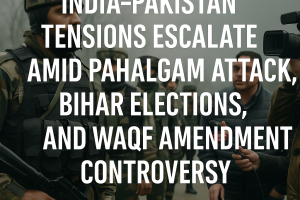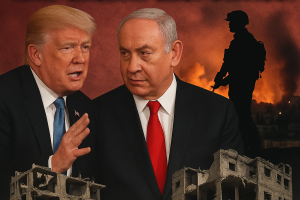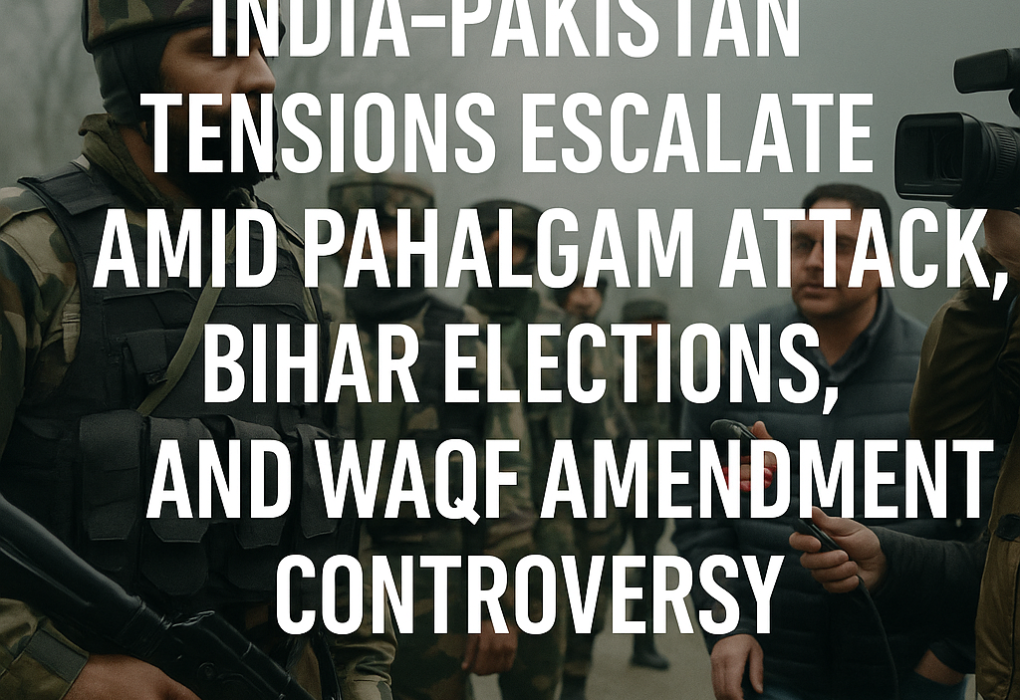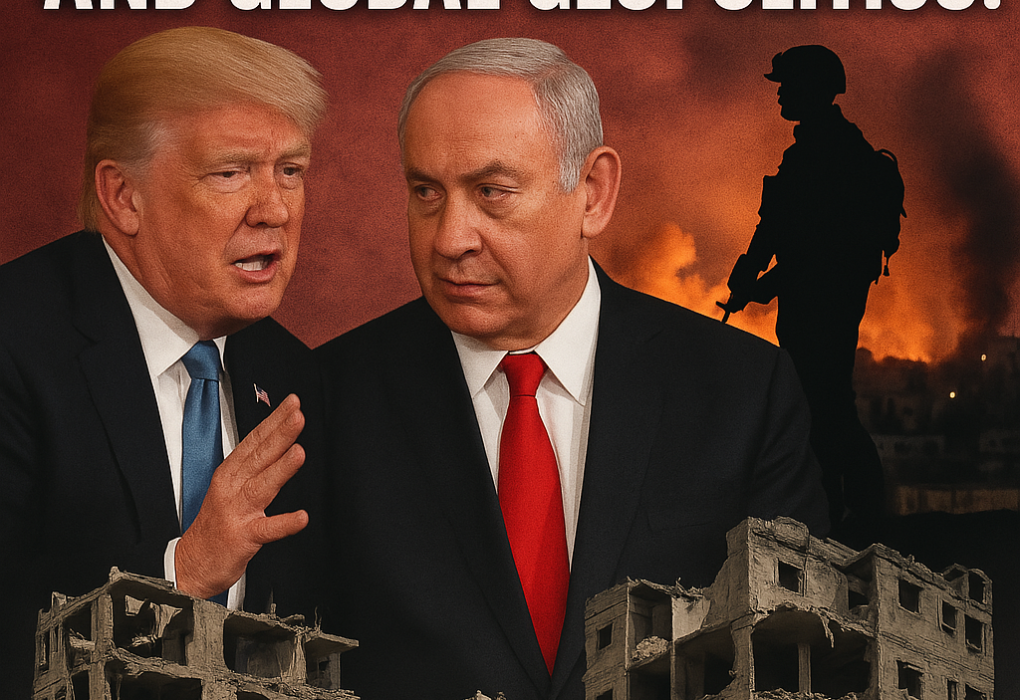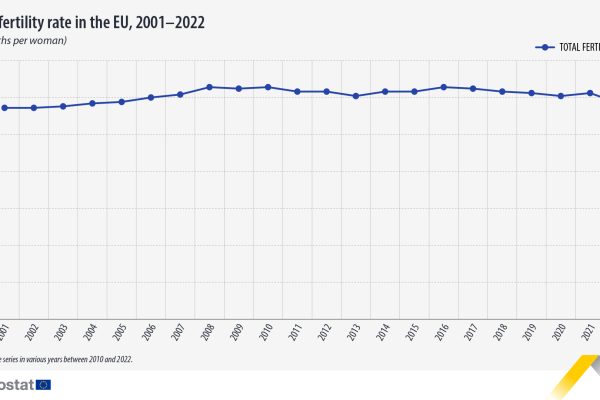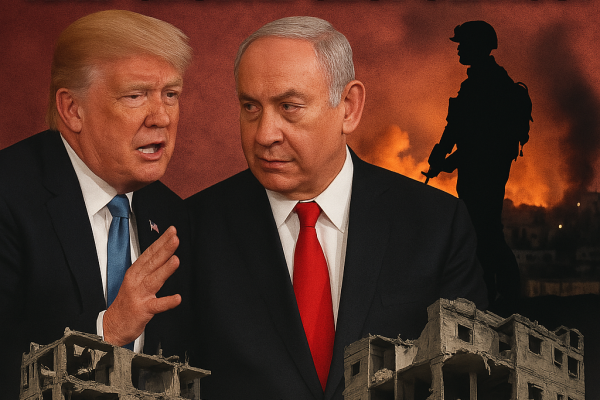
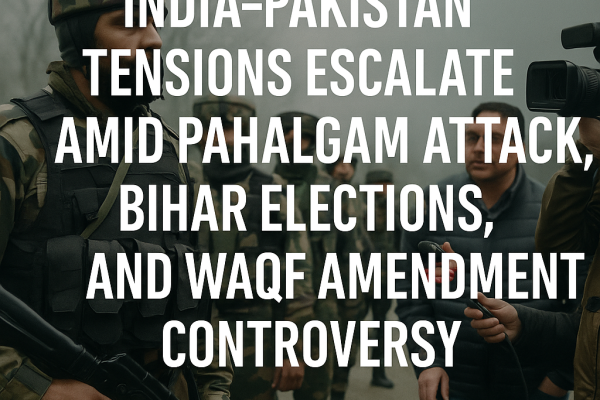
India-Pakistan Tensions Escalate Amid Pahalgam Attack, Bihar Elections, and Waqf Amendment Controversy
The recent Pahalgam attack has intensified India-Pakistan tensions, coinciding with the upcoming Bihar elections and the controversial Waqf (Amendment) Act, 2025. This article explores the multifaceted dynamics at play, including political strategies, security concerns, and the broader implications for regional stability and minority rights.

The Gaza Strip, Real Estate Mafia, and Global Geopolitics: A Complex Web of Conflict, Corruption, and Power Plays
The Gaza Strip, a small but densely populated region, is often associated with political turmoil, humanitarian crises, and complex socio-economic challenges. However, beneath the surface of conflict lies another pervasive issue: the real estate mafia. With the region’s already fragile economy and ongoing political instability, the real estate mafia plays a disturbing role in exacerbating these challenges. This article will examine the situation in the Gaza Strip, raising critical questions about the role of real estate corruption, the impacts of trade wars, and how these forces influence land acquisition, property development, and the livelihoods of ordinary citizens in the region.

Surah Az-Zukhruf (The Gold Adornments): Lessons on Materialism, Divine Guidance, and Spiritual Wealth
Surah Az-Zukhruf emphasizes the transient nature of worldly wealth and materialism, urging believers to focus on spiritual growth and faith in the Oneness of God. This Makkan Surah addresses the mockery faced by Prophet Muhammad ﷺ, warns against arrogance, and highlights the importance of patience, divine guidance, and the eternal rewards of the Hereafter.

Surah Ash-Shura (The Consultation): Divine Wisdom, Unity, and Guidance in Islam
Surah Ash-Shura, the 42nd chapter of the Qur’an, emphasizes the importance of mutual consultation, divine authority, and the unity of revelation among all prophets. It serves as a spiritual compass, directing humanity toward justice, compassion, and trust in Allah’s perfect wisdom.

Surah Fussilat: Key Themes, Scientific Reflections, and Moral Lessons
Explore Surah Fussilat’s divine wisdom, highlighting cosmic signs, moral lessons, and scientific insights. Learn how this Quranic chapter addresses creation, accountability, and spiritual guidance with timeless relevance.

The Masterminds of Israel: Key Figures and Strategic Movements
Israel’s success and survival can be attributed to the strategic brilliance of its leaders, such as David Ben-Gurion, Moshe Dayan, and Golda Meir, who shaped its military and political landscape. The country’s military victories, like the Six-Day War and the Yom Kippur War, were key turning points in securing its position in the Middle East. Israel’s intelligence agencies, like Mossad and Shin Bet, have played a crucial role in safeguarding the nation. Additionally, Israel’s economic focus on innovation and its global alliances have strengthened its influence. Despite ongoing challenges, Israel’s masterminds continue to guide its complex political and strategic future.

The Rich Population in Pakistan: Demographics, Factors, and Implications
The wealthy population in Pakistan is concentrated among a small number of families, primarily in urban centers, who control major industries like textiles, real estate, and agriculture. Political influence, historical economic policies, and family wealth through inheritance have contributed to the accumulation of wealth. The rich play a significant role in Pakistan’s economy, influencing business, culture, and politics. However, their wealth is often a subject of public scrutiny due to stark inequalities in income distribution. Despite these challenges, the rich continue to drive economic growth and hold significant influence in the country’s development.
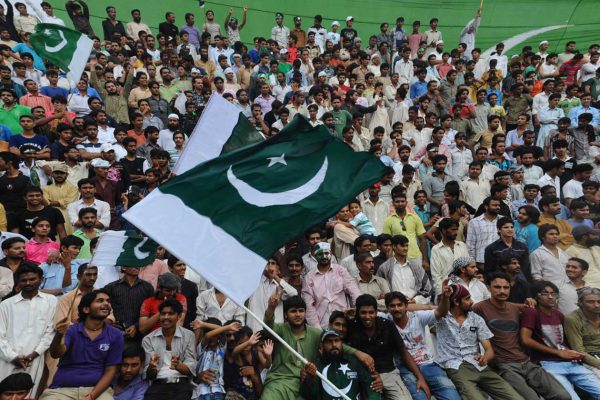
The Middle Class in Pakistan: Demographics, Growth, and Challenges
The middle class in Pakistan has grown significantly due to economic expansion, urbanization, and increased access to education and technology. It now comprises around 35-40% of the population, with a concentration in urban areas. Factors like migration to cities, remittances, and rising consumerism have further bolstered this demographic. However, challenges such as inflation, limited access to quality services, and economic instability threaten its growth. Despite these issues, the middle class plays a vital role in Pakistan’s economy, culture, and political landscape, driving social change and economic development.

The Mastermind of Pakistan: Visionaries, Leaders, and Influencers
Muhammad Ali Jinnah, the founding father of Pakistan, was the mastermind behind its creation in 1947. His leadership and vision through the **Two-Nation Theory** laid the foundation for a separate Muslim homeland. Key figures like **Allama Iqbal** and **Dr. Abdul Qadeer Khan** further contributed to Pakistan’s ideological and defense advancements. Jinnah’s dream of a progressive Pakistan continues to inspire leaders today. The nation remains a testament to his determination and foresight.
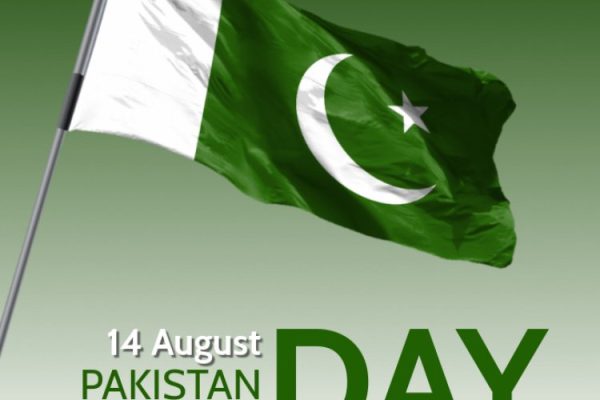
The Present Condition of Pakistan
1. Introduction
Pakistan is a nation with immense potential, yet it faces complex challenges across political, economic, social, and environmental fronts. Despite ongoing struggles, it continues to make strides in areas like technology, education, and international relations.







